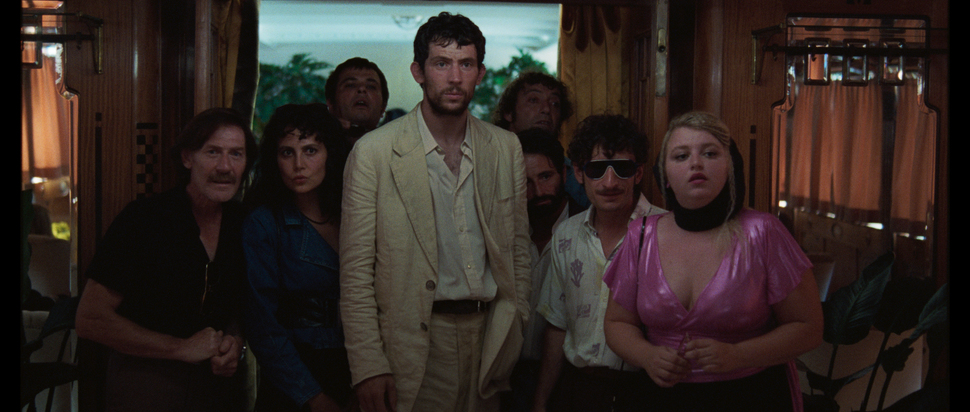La Chimera
Josh O’Connor plays a grave robber in the ethereal new film from Happy as Lazzaro director Alice Rohrwacher
The past collides with the present and the living collides with the dead in La Chimera, Alice Rohrwacher’s meditation on personal histories and collective belonging. In 1980s Italy, Arthur (Josh O’Connor), a British archaeologist, is using his training – and a strange dowsing instinct others call his “chimera” – not to preserve the work of ancient civilisations but to steal priceless artefacts from Etruscan graves and sell them to the highest bidder, usually a mysterious middleman known as Spartaco.
When the film opens, Arthur has just been released from prison. The reason is never specified, but a statement from one of his grave-robbing comrades suggests that he was caught on a job while the others got away. Another unspecified secret is the loss of Arthur’s lover Beniamina (Yile Vianello): she is recently dead and haunting his dreams, but the circumstances are never explained. Neither matters: Arthur has no choice but to carry on with his life.
In a masterful, frequently heartbreaking performance, O’Connor balances Arthur’s kindness and curiosity – traits that often come out despite his best gruff affectations – with a deep unease and volatile temper. He crafts an affecting, truthful portrait of carrying on through grief and confusion in a land he loves but is not wholly one with. As he spends time between his workmates and Beniamina’s childhood home with her mother, Flora (Isabella Rossellini), Rohrwacher complicates his journey into the past – both that of an ancient civilisation, and of his own heart – when he meets Italia (Carol Duarte), a distinctly unmusical young woman helping Flora out around the house in exchange for music lessons. The tension between Arthur and Flora travels an unforced, ever-interesting path and provides the film’s emotional crux – fitting as both characters are new to the other, as compared to Arthur’s other interrupted or ended relationships.
The period details of La Chimera, from cars and cameras to linen suits and jewel-toned tank tops, are painstakingly created and shot with a hazy, sun-drenched melancholy. Hélène Louvart’s cinematography often captures the surrounding setting in a boxy 4:3 aspect ratio and grainier film stock, as if from Arthur or his companions’ lenses rather than the (wider, clearer) shots seen through their own eyes. Some more comedic scenes are sped up at a faster frame rate, adding a whimsy hearkening back to an even earlier era of cinema. As La Chimera works across so many timelines, this technique acts as another fold of history, turning these cycles and eras into one ever-moving stream.
As abandoned buildings are given a new chance at life, makeshift houses move up and down the mountainside, stones are cracked and shifted off the top of long-forgotten treasure, and memories of lost loves continually resurface, one refrain remains: do these items and places belong to someone, no one, or to us all collectively? Rohrwacher refuses to accept easy answers for matters of the world and of the human heart. La Chimera examines how humans have always memorialised the transient; the beauty at the end of it all is always the result of love.
Released on 10 May by Curzon; certificate 15
For more on La Chimera, listen to the latest episode of The Cineskinny podcast in the player below, or wherever you get your podcasts
